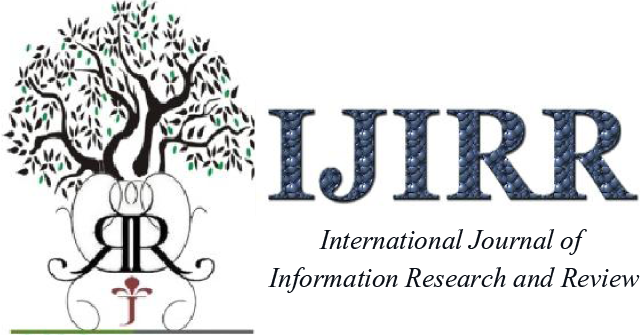Editorial
Volume 1 Issue 4 - 2017
Cutting Edge of the Health Care: Legal Upgradation
Associate professor in Deportment of Conservative Dentistry and Endodontics, Government Dental College and Hospital, Mumbai, India
*Corresponding Author: Manoj Ramugade, Associate professor in Deportment of Conservative Dentistry and Endodontics, Government Dental College and Hospital, Mumbai, India.
Received: August 07, 2017; Published: August 09, 2017
Life is precious and saving one’s life is the noblest cause. The aim of medical profession is to render service to humanity and keeping financial gain as last consideration. [1] Every health professional is highly dedicated and determined to save and improve the quality of life through their honest services. Whatever may be the quality of services provided to the patients; certain class of patients or their relatives remained unsatisfied with the provided health care and health professionals were alleged regarding negligence on the part of their duty. [2]
Industrialization and globalization leads to advancement in each and every aspect of our life including health care services. Advances in mass media and exposure to internet in this informative world increases the global health awareness and patients get aware regarding their health and the disease they suffer. Modern equipments and technologies especially in the medical field help the health professionals to arrive at correct diagnosis through latest investigations and do the proper treatment which ultimately reduces the morbidity.
In past, doctors were treated next to God by the patients. With the enactment of Consumer protection act the doctors were considered as only health service providers and not the life saviours. [3] As the health profession was covered under the ambit of the Consumer protection act, the litigations were drastically increased regarding allegations of negligence. [4] Also negative publicity in mass media make the health professional a villain before actual trial and conviction.
Doctor and patient relationship is considered to be a trust based relationship where patient with his implied consent get the treatment from respective doctor for the charges he paid for the health services. It does not mean that doctor guarantees that treatment for that patient but usually assured the patient for his health through his knowledge, experience, skills and reasonable degree of care. In the course of treatment if any mishap occurs then the doctor should not be blamed and targeted for his negligence. [5,6]
Treating a live human being for his ailment is a complex and risky procedure. Unfortunately things might go wrong and mishap might occur any time as an accidental event. In this situation the doctor should be well aware and knowledgeable to face the situation. Medicolegal issues are unfortunate for the reputation of that doctor in his professional career as well as in personal life. In medical student’s life every aspect of medical field including moral and ethical principles have been taught but somewhere the importance of a good communication, patient management and the legal aspects remained untouched. Ultimately lack of communication or the legal knowledge make the professional to face legal hassles in future. [7]
In underdeveloped and developing countries population explosion and poverty are the major obstacles for health care development and provision of health services. Mismatch in proportion of health care provider: patient ratio may lead to mishaps in the treatment rendered to the patient. Heavy work loaded doctors and associated health care staff are vulnerable to have mishaps or accidents while performing their duties and become an easy prey for the vigilant and sly patients claiming monetary compensation. Awareness and inculcation of basic principles of ethics, morality and law not only saves the doctor from frivolous allegations and mal-reputation in the society but also save their precious time and money spent for court litigations.
Although doctors are bound by their codes of ethical and professional conduct, while treating the patients; the legal formalities should not be underestimated except in emergency situations. [8] Fail to obtain consent from patient or care taker itself initiate the lack of duty and further on occurrence of accidental event it exaggerate the situation like negligence. Keeping all record and upgrading from time to time are best solutions for the health professionals to get withdrawn themselves from such litigations.
To conclude, allegations and litigations are undetachable organs of the public health care sectors in this modern world of vigilant patients. Legal knowledge, availability of skilled staff with modern medical services, sympathetic communication and friendly hospital environment are the basis and saviour for any successful heath care practice.
References
- INDIAN MEDICAL COUNCIL (Professional Conduct, Etiquette and Ethics) Regulations, (2002).
- Poonam Verma v. Ashwin Patel and OR’s., 4 SCC 332. (1996).
- National Consumer Disputes Redressal Commission, Bare Acts- Consumer Protection Act-1986.
- Indian Medical Association Vs V.P. Shantha and others, AIR 550, 1995 SCC (6) 651. (1996).
- Mrs. Shantaben Muljibhai Patel and Ors. vs. Breach Candy Hospital and Research Centre and Ors. ICPJ 10 (NC). (2005).
- Laxman Balkrishna Joshi vs.Trimbak Godbole, AIR 1969 SC 128.
- Ramugade M., et al. “Medicolegal Knowledge- An awakening call for dentist”. International Journal of Current Medical and Pharmaceutical Research 3.5 (2017): 1660-1664.
- Parmananda Katara vs. Union of India AIR 1989 SC 1039.
Citation:
Manoj Ramugade. “Cutting Edge of the Health Care: Legal Upgradation”. Oral Health and Dentistry 1.4 (2017): 183-184.
Copyright: © 2017 Manoj Ramugade. This is an open-access article distributed under the terms of the Creative Commons Attribution License, which permits unrestricted use, distribution, and reproduction in any medium, provided the original author and source are credited.



































 Scientia Ricerca is licensed and content of this site is available under a Creative Commons Attribution 4.0 International License.
Scientia Ricerca is licensed and content of this site is available under a Creative Commons Attribution 4.0 International License.